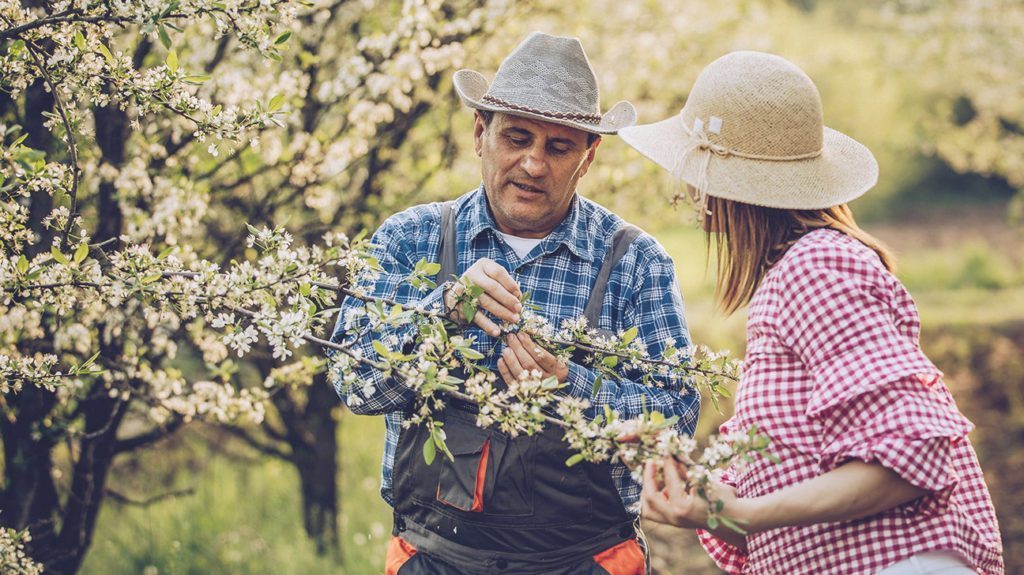Allergy season is here even if you don’t see lots of pollen or feel the warm spring air.
In Atlanta and Philadelphia, the amount of tree pollen in the area has reached very high levels, according to the American Academy of Allergy, Asthma & Immunology (AAAI).
And it’s not just the eastern side of the country that’s having pollen issues. Las Vegas has a high concentration of tree and weed pollen despite being in the desert.
So what’s affects allergy season? In part your winter weather. The weather throughout the year can impact the severity of allergens.
“Milder winters are continuing to affect spring allergies. Trees are able to pollinate earlier and for longer periods, extending the allergy season by several weeks,” Kenneth Mendez, president and CEO of the Asthma and Allergy Foundation of America, told Healthline.
Climbing temperatures mean that plants can start blooming earlier and all at once after a harsh winter.
“This year’s winter and early spring weather have been warmer than average,” said Stacey Galowitz, DO, a board-certified allergist at ENT & Allergy Associates of Somerset in New Jersey.
Typically the first allergen in the spring is the tree pollen, followed by grass pollen in the late spring and early summer, and then weed pollen in the fall, Galowitz explained. Tree pollen typically begins in the late winter (end of February/early March) and can last until late spring (end of June). The month of May is particularly troublesome for people as grass pollen begins to peak while tree pollen is concurrently high.
Pollen levels appear to be rising across the globe, and climate change affects the weather in general, which in turn, affects the allergy season, she noted.
A long winter can also mean that trees bloom later, but the start of spring means there can be a sudden influx of pollen all at once, as is predicted for the Midwest and Northeast according to Accuweather.
Preventing pollen
Dr. Do-Yeon Cho, an assistant professor of otolaryngology at the University of Alabama at Birmingham said it’s important to know what you’re allergic to in order to quell symptoms. Consult an allergist or ear, nose, and throat specialist to identify specific allergens, then you can work to treat them.
A few ways to prevent pollen exposure include limiting outdoor exposure during times when pollen counts are high. Quality air filters in your home can also help, such as high-efficiency particulate absorbance (HEPA) filters.
Cleaning your home, including washing your bedding in hot soapy water and drying the linens indoors, are also ways to reduce pollen in your home.
When you do go outside and return indoors, change your clothes to lower the chance of pollen on the fabric spreading indoors.
Starting allergy medication now — even if you’re not experiencing symptoms but know you will — is a good step. It can prevent your body from releasing chemicals including histamines that cause allergic symptoms, Cho said in a statement.
Treating allergies
“Unfortunately there aren’t many new ways to get relief from allergies,” Galowitz said.
While there are many options to treat allergies — such as antihistamines, nasal steroid sprays, and antihistamine nasal sprays — what remains the gold standard for allergy sufferers is allergy shots or allergen immunotherapy. The shots work by exposing the immune system to low doses of allergens.
“Certain pollens, such as grass and ragweed pollen, can be treated with oral medications, but allergy shots are more effective for tree pollen,” she added.
Nasal steroids, which are available over the counter, are the best medication when used regularly in pollen season, Galowitz said.
“This is best used when started before the pollen season, around the first of March,” she noted.
Nasal steroids can be used alone or in combination with oral non-sedating antihistamines. Ketotifen eye drops are also available over the counter to treat eye-related symptoms, but first discuss with an allergist which medication or combination is best for you.
Another way to treat allergies without or in combination with medication is to rinse nasal passages with saline. This directly flushes mucus and allergens out of the nose, and may provide some relief.

